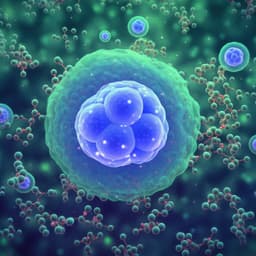
Psychology
Probiotics as a Tool for Regulating Molecular Mechanisms in Depression: A Systematic Review and Meta-Analysis of Randomized Clinical Trials
A. Pinhasov, M. Sikorska, et al.
This systematic review and meta-analysis by Albert Pinhasov, Michalina Sikorska, Anna Z Antosik-Wójcińska, and Monika Dominiak reveals that probiotics may significantly enhance BDNF levels and lower CRP levels in patients with depression, particularly those with somatic comorbidities. Discover the potential of probiotics as a promising add-on treatment for depression!
Related Publications
Explore these studies to deepen your understanding of the subject.







